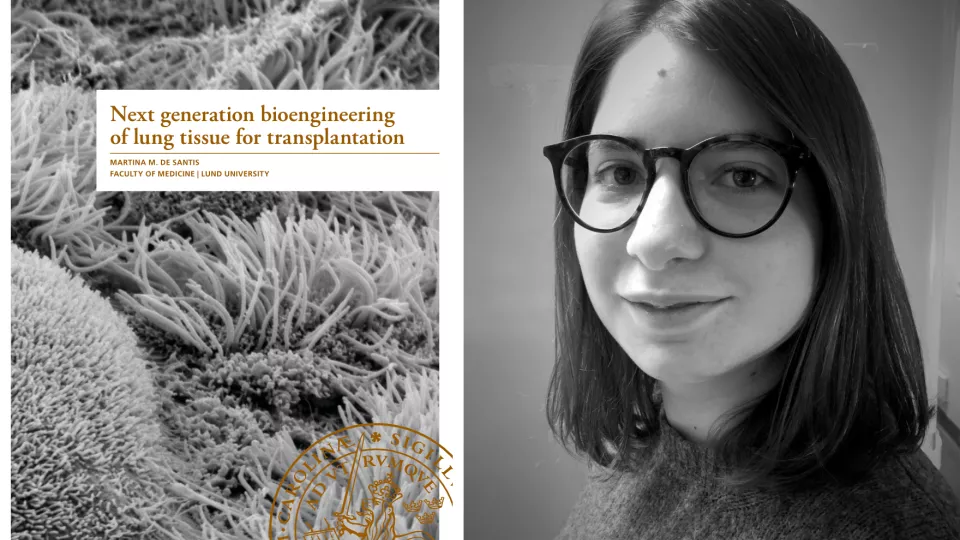Can you tell us about your research?
-Over three million people die each year and over 60 million people suffer worldwide from chronic lung diseases, for which there is no cure other than lung transplantation. Due to various reasons, including a lack of donor organs and complications associated with immunosuppressive drug regimens, five-year survival rates following lung transplantation are currently at only fifty percent - the lowest of all solid organs. That is why our lab, the Lung Bioengineering and Regeneration group, is focused on bioengineering lungs outside of the body.
What I am presenting in my PhD thesis is the 3D bioprinting of small airways that remain patent over time. Using a dual extrusion method, we are able to produce hollow tubes with distinct but connected layers, of high fidelity to the dimensions of the airways of the lung.
To achieve this, we modified commercial 3D printers - normally used to print plastics - to print with high water content polymer solutions. I have been mainly involved in developing a bioink, made out of lung extracellular matrix combined with a polymer derived from sea weed known as alginate. This bioink can be bioprinted and easily crosslinked into hydrogels, (gels with a high water content that are highly cytocompatible) enabling cells to grow, proliferate and differentiate in our 3D printed airways.
By demonstrating a new approach for generating functional structures that also allow for vascular integration when transplanted, my research has brought the bioprinting of human tissue for transplantation one step closer to reality.
How did you end up doing a PhD at Lund Stem Cell Center?
-I’m Italian but grew up in Germany and after finishing high school I moved to the U.K. for a Bachelor’s degree in Biochemistry at Imperial College, London. I went on to complete a Master’s degree in Biosciences at UCL with a focus on stem cells and developmental biology and during this time I worked on bioengineering intestinal extracellular matrix hydrogels to culture organoids.
During my Master’s, I came across Darcy’s research which really inspired me, so I got into contact and she invited me to do a PhD with her in Munich. I followed Darcy to Lund in 2017 when she had the opportunity to become a PI and set up her own group.
Which aspects of your PhD have you found the most valuable?
-That my PhD project was so interdisciplinary. I learned a lot of different techniques - from biology to physics to chemistry - and never had a moment where I was bored with my project. I also had the opportunity to collaborate with researchers from different fields and get some insight into how they perceive science and go about solving research questions.
What have been the most challenging aspects of your PhD?
-I would have to say staying patient. I’m quite a fast paced person and when things don’t work out the first time round, that can be a bit frustrating. I have definitely learned to accept that experiments don’t always come out the way you expect and to keep persevering to find the right answers to your research questions. You never know where one question can bring you and that makes science exciting and fun.
What have you enjoyed the most whilst researching at Lund Stem Cell Center?
-For me it’s been the environment in which you get to interact with really smart people researching lots of different things, using really cool techniques. I also really enjoyed the research retreats and ‘Meet the experts’ seminars, giving you the opportunity to interact with other researchers and collaborate, or come up with solutions to any type of issues you may be having in your research projects.
What are your future plans?
-The past few weeks have been quite intense with job applications and interviews. I have had a few offers of postdoctoral positions but haven’t decided what I’m going to do yet. I’m trying to figure out what is the best fit for me, project wise and life wise.
Martina will be defending her PhD thesis titled "Next generation bioengineering of lung tissue of transplantation" on Friday 19th February at 14:30 in Segerfalksalen, BMC A10.
Zoom link: TBA
Her opponent is Prof. Sam Janes, University College London, U.K.


